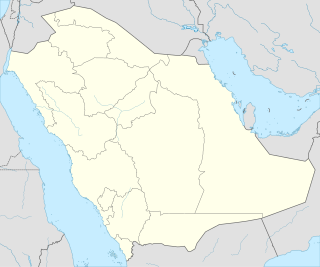 W
WAl-Awamiyah, also spelled Awamia, is a town situated in the Al-Qatif region in the Eastern Province of Saudi Arabia. As of 2009, it has a population of about 25,500 people. Al-Awamiyah is bordered by the Al-Ramis farms to the east and some other farms to the west and the south. To the north side, there is a dividing line between Al-Awamiyah and the neighboring Safwa city, so the town cannot expand any more and provide housing land for its growing population. Due to this limited land, the people move out of the town and settle in nearby neighborhoods, notably Al-Nasera which is home to almost 2500 people living in 250 homes.
 W
WAnti-Shi'ism is hatred of, prejudice, discrimination, persecution and violence against Shia Muslims because of their religious beliefs, traditions and cultural heritage. The term was first defined by Shia Rights Watch in 2011, but it has been used in informal research and written in scholarly articles for decades.
 W
WThe Madhe Sahaba Agitation was a civil disobedience movement launched by Deobandi Muslims of Lucknow in the first half of the twentieth century to counter the commemoration of the tragedy of Karbala during Muharram. It resulted in a widespread Shia-Sunni conflict between the years 1906 - 1909 and turned violent in 1936 - 1939. The conflict spread to other parts of British India.
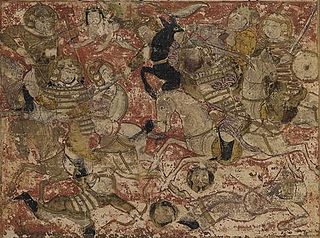 W
WSectarian violence and/or sectarian strife is a form of communal violence which is inspired by sectarianism, that is, between different sects of one particular mode of an ideology or religion within a nation/community. Religious segregation often plays a role in sectarian violence.
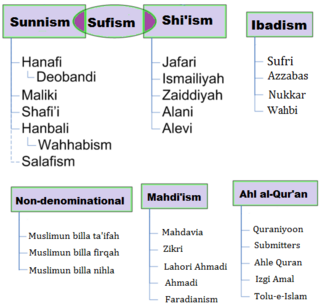 W
WSectarian violence among Muslims is the ongoing conflict between Muslims of different sects, most commonly Shias and Sunnis, although the fighting extends to smaller, more specific branches within these sects, as well as Sufism. It has been documented as having gone on from Islam's beginnings up until contemporary times.
 W
WThe 13 May 1969 incident was the Sino-Malay sectarian violence that took place in Kuala Lumpur, Malaysia on that date in 1969. The riot occurred in the aftermath of the 1969 Malaysian general election when opposition parties made gains at the expense of the ruling coalition, the Alliance Party. Official reports put the number of deaths due to the riots at 196, although Western diplomatic sources at the time suggested a toll of close to 600, with most of the victims Chinese. The racial riots led to a declaration of a state of national emergency or Darurat by the Yang di-Pertuan Agong resulting in the suspension of the Parliament by the Malaysian government, while the National Operations Council (NOC), also known as the Majlis Gerakan Negara (MAGERAN), was established as a caretaker government to temporarily govern the country between 1969 and 1971.
 W
WThe 2001 Kampung Medan riots is a sectarian violence between the Indian and Malay that initially began in a small village of Kampung Medan located in Petaling Jaya, Selangor, Malaysia. The riot then further escalated and spread all the way through Kampung Gandhi, Kampung Lindungan, Kampung Datuk Harun, Taman Desa Ria and the surrounding of Jalan Klang Lama. The racial crisis then spread all the way through Petaling Jaya, Jalan Gasing, Kelana Jaya, Sungai Way, Bandar Sunway and Puchong. The riot started from 4 March until 13 March 2001. Photographs in Malaysiakini's possession are gruesome evidence of the extensive hurt, both physical and emotional, inflicted by the clashes. The three weeks of tension resulted in the deaths of 6 people, and left over a hundred people with severe wounds, ranging from head injuries, broken bones, to slashes and hacked off limbs. Four hundred people were detained.
 W
WThe 2008 Kandhamal violence refers to violence between groups led by the Sangh Parivar, and Christians in the Kandhamal district of Orissa, India, in August 2008 after the murder of the Hindu monk Lakshmanananda Saraswati.
 W
WAnti-Sunnism is hatred of, prejudice, discrimination, persecution and violence against Sunni Muslims in the response to the Orthodoxy of Sunni Islam.
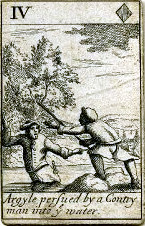 W
WArgyll's Rising or Argyll's Rebellion was a 1685 attempt to overthrow King James II and VII of England, Ireland, and Scotland by a group of Scottish exiles. Led by Archibald Campbell, 9th Earl of Argyll, the rising was intended to tie down Royal forces in Scotland while a simultaneous rebellion under James Scott, 1st Duke of Monmouth began in England. Both rebellions were backed by dissident Protestants opposed to the accession of the Roman Catholic James to the throne.
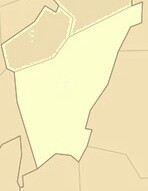 W
WOn 19 August 2017, Attaullah Shah, a prominent worker of Jamiat Ulema-e-Islam (F), was shot dead by unknown assailants at Bannu ada, Dera Ismail Khan, Khyber Pakhtunkhwa, Pakistan. No one claimed responsibility of the assault.
 W
WThe 2008 attacks on Christians in southern Karnataka were a wave of attacks directed against Christian churches and prayer halls in the Indian city of Mangalore, and the surrounding area of southern Karnataka, in September and October 2008 by Hindu organizations, the Bajrang Dal and Sri Ram Sena. The attacks were widely perceived by Christians in southern Karnataka to be punishment from the right-wing Hindu nationalist organisations because Christians had been outspoken about Christian persecution in Orissa, and after the murder of Swami Lakshmanananda, a Hindu monk, allegedly killed by the local Christian community. Additionally, because the New Life Fellowship Trust (NLFT), a fundamentalist, non-denominational Christian Church, was alleged by the Bajrang Dal to be responsible for forced conversions of Hindus to Christianity.
 W
WBalkanisation is a sometimes deprecated geopolitical term for a disorderly or unpredictable fragmentation, or sub-fragmentation, of a larger region or state into smaller regions or states, which may be hostile or uncooperative with one another. When sponsored or encouraged by a sovereign third party, the term has been used as an accusation against such third party nations. The term has also been used by voices for the status quo to underscore the dangers of acrimonious or runaway secessionism.
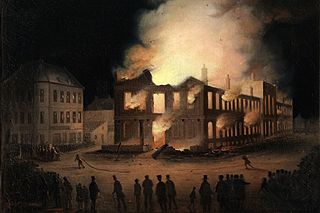 W
WThe burning of the Parliament Buildings in Montreal was an important event in pre-Confederation Canadian history and occurred on the night of April 25, 1849, in Montreal in the Province of Canada. It is considered a crucial moment in the development of the Canadian democratic tradition, largely as a consequence of how the matter was dealt with by then co-prime ministers of the united Province of Canada, Sir Louis-Hippolyte Lafontaine and Robert Baldwin.
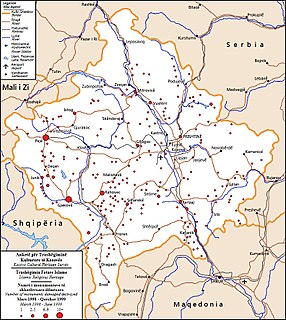 W
WThe architectural heritage of the Kosovo Albanians during Yugoslav rule was shown institutionalised disregard for decades prior to outright conflict at the end of the 20th century. Numerous Albanian cultural sites in Kosovo were destroyed during the period of Yugoslav rule and especially the Kosovo conflict (1998-1999) which constituted a war crime violating the Hague and Geneva Conventions. In all, 225 out of 600 mosques in Kosovo were damaged, vandalised, or destroyed alongside other Islamic architecture during the conflict. Additionally 500 Albanian owned kulla dwellings and three out of four well-preserved Ottoman period urban centres located in Kosovo cities were badly damaged resulting in great loss of traditional architecture. Kosovo's public libraries, of which 65 out of 183 were completely destroyed, amounted to a loss of 900,588 volumes, while Islamic libraries sustained damage or destruction resulting in the loss of rare books, manuscripts and other collections of literature. Archives belonging to the Islamic Community of Kosovo, records spanning 500 years, were also destroyed. During the war, Islamic architectural heritage posed for Yugoslav Serb paramilitary and military forces as Albanian patrimony with destruction of non-Serbian architectural heritage being a methodical and planned component of ethnic cleansing in Kosovo.
 W
WThe Dolly's Brae conflict occurred in County Down in Ulster on 12 July 1849. A contested procession by Orangemen resulted in a skirmish between the Orangemen, local Catholics and Ribbonmen and the police. The Catholics dispersed, following which the Orangemen proceeded to attack local Catholics and destroy property. An official report on the conflict stated that there were thirty deaths. However, this figure is contested by historians. The violence led directly to the Party Processions Act, curtailing activities perceived to be sectarian in Ireland. Nevertheless, the conflict entered Ulster Protestant folk memory as the Battle of Dolly's Brae.
 W
WThe 1964 East Pakistan Riots refer to the alleged massacre and ethnic cleansing of Bengali Hindus from East Pakistan in the wake of an alleged theft of what was believed to be the Prophet's hair from the Hazratbal shrine in Jammu and Kashmir in India. The salient feature of the pogroms was its urban nature and selective targeting of Bengali Hindu owned industries and merchant establishments in the capital city of Dhaka. This resulted in unending waves of Bengali Hindu refugees in neighbouring West Bengal. The refugee rehabilitation became a national problem in India, and hundreds of refugees were resettled in Dandakaranya region of Odisha & Madhya Pradesh.
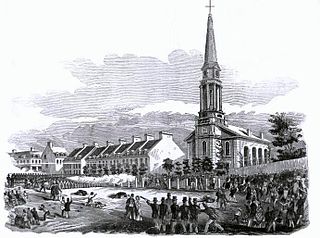 W
WThe Gavazzi Riots were disturbances created in Quebec and Montreal, in June 1853, by mobs which attacked halls in which ex-Catholic monk Alessandro Gavazzi was lecturing.
 W
WThe Gordon Riots of 1780 were several days of rioting in London motivated by anti-Catholic sentiment. They began with a large and orderly protest against the Papists Act of 1778, which was intended to reduce official discrimination against British Catholics enacted by the Popery Act 1698. Lord George Gordon, head of the Protestant Association, argued that the law would enable Catholics to join the British Army and plot treason. The protest led to widespread rioting and looting, including attacks on Newgate Prison and the Bank of England and was the most destructive in the history of London.
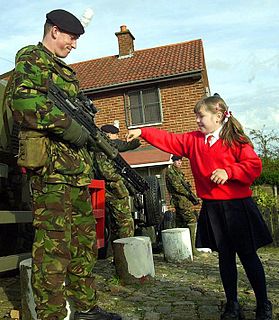 W
WThe Holy Cross dispute occurred in 2001 and 2002 in the Ardoyne area of north Belfast, Northern Ireland. During the 30-year conflict known as the Troubles, Ardoyne had become segregated – Ulster Protestants and Irish Catholics lived in separate areas. This left Holy Cross, a Catholic primary school for girls, in the middle of a Protestant area. In June 2001—during the last week of school before the summer break—Protestant loyalists began picketing the school, claiming that Catholics were regularly attacking their homes and denying them access to facilities.
 W
WHuman rights in Saudi Arabia are a topic of concern. The Saudi government, which enforces sharia law under the absolute rule of the House of Saud, have been accused of and denounced by various international organizations and governments for violating multiple human rights within the country. The totalitarian regime ruling the Kingdom of Saudi Arabia is consistently ranked among the "worst of the worst" in Freedom House's annual survey of political and civil rights. Qorvis MSLGroup, a U.S. subsidiary of Publicis Groupe, has been working with Saudi Arabia amidst its executions of political protesters and opponents for more than a decade to whitewash its record of human rights abuses.
 W
WIsraeli settler violence refers to acts of violence committed by Jewish Israeli settlers and their supporters against Palestinians and Israeli security forces, predominantly in the West Bank. Although the majority of settlers do not engage in violence, there has been a rise in violent acts by extremists against Palestinians, non-Jews, Israel Police, and IDF troops in the early twenty-first century. Between January and November 2008, 515 criminal suits were opened by Israel against settlers for violence against Arabs or Israeli security forces; 502 of these involved "right wing radicals" while 13 involved "left wing anarchists". In 2008, the senior Israeli commander in the West Bank said that a hard core of a few hundred activists were involved in violence against the Palestinians and Israeli soldiers.
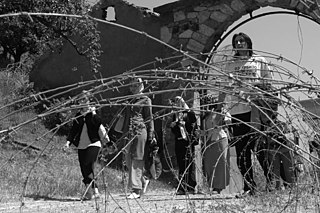 W
W2004 unrest in Kosovo is the worst ethnic violence case in Kosovo since the end of the 1999 conflict erupted in the partitioned town of Mitrovica, leaving hundreds wounded and at least 14 people dead. The unrest was precipitated by misleading reports in the Kosovo Albanian media which falsely claimed that three Kosovo Albanian boys had drowned after being chased into the Ibar River by a group of Kosovo Serbs. UN peacekeepers and NATO troops scrambled to contain a raging gun battle between Serbs and ethnic Albanians. In Serbia the events were also called the March Pogrom, while in Kosovo they are called The March Unrest.
 W
WHuman rights in Myanmar under its military regime have long been regarded as among the worst in the world. International human rights organisations including Human Rights Watch, Amnesty International, and the American Association for the Advancement of Science have repeatedly documented and condemned widespread human rights violations in Myanmar. The Freedom in the World 2011 report by Freedom House notes that "The military junta has... suppressed nearly all basic rights; and committed human rights abuses with impunity." In 2011 the "country's more than 2,100 political prisoners included about 429 members of the NLD, the victors in the 1990 elections." As of July 2013, according to the Assistance Association for Political Prisoners, there were about 100 political prisoners in Burmese prisons.
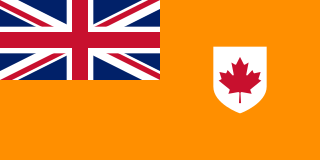 W
WThe Grand Orange Lodge of British America, more commonly known as the Grand Orange Lodge of Canada or simply Orange Order in Canada, is the Canadian branch of the Orange Order, a Protestant fraternal organization that began in County Armagh, Northern Ireland in 1795. It has played a large part in the history of Canada, with many prominent members including four Prime Ministers, among them Sir John A. Macdonald and John Diefenbaker,.
 W
WPrice tag policy, also known as "Mutual Responsibility", is the name originally given to acts of vandalism by Jewish fundamentalist settler youths, aimed at the Palestinian population, Christians, left-wing Israeli Jews, Arab Israelis, and the Israeli security forces. The youths claim to "exact a price from local Palestinians or from the Israeli security forces for any action taken against their settlement enterprise" according to The New York Times. The acts also referred to as "tactic", "strategy", "doctrine", "campaign", or "principle". The term "price tag attack" now extends to acts of vandalism, and especially to acts of anti-Arab vandalism, suspected to be the work of lone individuals, against the Israeli army and security services, as well as against Christian and Muslim places of worship, and also against left-wing institutions that criticize settlers. In May 2014, Shin Bet said the price-tag hate crimes were the handiwork of about 100 individuals mainly hailing from the Yitzhar settlement and hilltop outposts, and were inspired by the ideas of rabbi Yitzchak Ginsburgh.
 W
WThe Priestley Riots took place from 14 July to 17 July 1791 in Birmingham, England; the rioters' main targets were religious dissenters, most notably the politically and theologically controversial Joseph Priestley. Both local and national issues stirred the passions of the rioters, from disagreements over public library book purchases, to controversies over Dissenters' attempts to gain full civil rights and their support of the French Revolution.
 W
WSaint George's Night Uprising in 1343–1345 was an unsuccessful attempt by the indigenous Estonian population in the Duchy of Estonia, the Bishopric of Ösel-Wiek, and the insular territories of the State of the Teutonic Order to rid themselves of Danish and German rulers and landlords who had conquered the country in the 13th century during the Livonian Crusade; and to eradicate the non-indigenous Christian religion. After initial success the revolt was ended by the invasion of the Teutonic Order. In 1346, the Duchy of Estonia was sold for 19,000 Köln marks by the King of Denmark to the Teutonic Order. The shift of sovereignty from Denmark to the State of the Teutonic Order took place on November 1, 1346.
 W
WThe Syrian Civil War is an intensely sectarian conflict. The focus of the conflict has been identified by some as a ruling minority Alawite government and allied Shi'a governments such as Iran, pitted against the country's Sunni Muslim majority who are aligned with the Syrian opposition and their Sunni Turkish and Persian Gulf state backers. Others, such as the blogger Neil Clarke, identify it as the secular Syrian government, made up of all religious groups pitted against the Islamist opposition. However, Sunni Muslims make up the majority of the Syrian Arab Army and many hold high governmental positions, while Alawites and members of almost every minority have also been active on the rebel side.
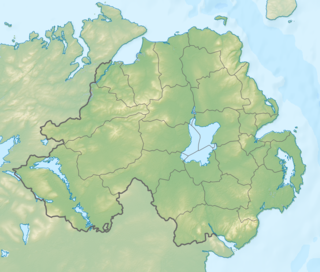 W
WThe Store Bar shooting was a mass shooting that occurred on the 25 June 1976 in the late evening when an armed group of men calling themselves the Republican Action Force walked into The Store Bar on Lyle Hill Road in Templepatrick, County Antrim.